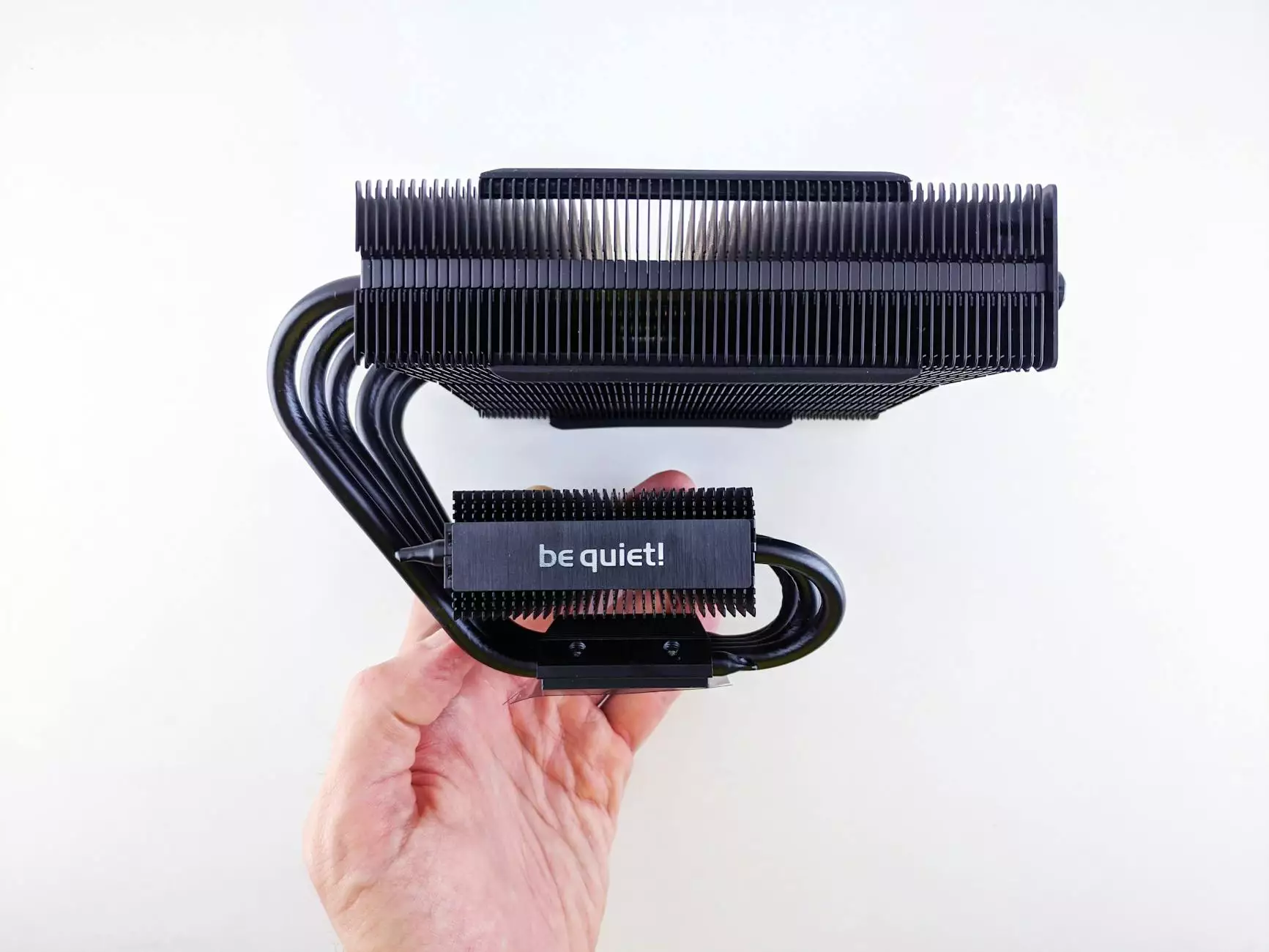The Essential Role of Oil Coolers in Diesel Engines

When it comes to sustaining the performance of diesel engines, one crucial component often overlooked is the oil cooler. The efficiency and longevity of an engine heavily depend on maintaining optimal operating temperatures, and this is where oil coolers come into play. This article explores the significance of oil coolers in diesel engines, highlighting their features, benefits, and how they contribute to overall engine efficiency.
What is an Oil Cooler?
An oil cooler is a device designed to regulate the temperature of engine oil by dissipating heat away from the oil. In diesel engines, where operational demands can lead to high temperatures, an oil cooler plays a vital role in ensuring the engine oil remains within a safe temperature range. This not only enhances engine performance but also prolongs the life of engine components.
Why Oil Temperature Management is Crucial
Effective temperature management can significantly influence a diesel engine's performance for several reasons:
- Prevents Overheating: Diesel engines operate under heavy loads, producing substantial heat. An oil cooler helps keep the oil at optimal temperatures, preventing overheating which can lead to catastrophic engine failures.
- Improves Lubrication: Engine oil that is too hot loses its viscosity, meaning it cannot provide adequate lubrication to engine parts. This can result in increased wear and tear and potential engine damage.
- Enhances Fuel Efficiency: Maintaining correct oil temperatures contributes to improved fuel efficiency. When the oil and engine work efficiently together, it requires less energy to function.
- Reduces Emissions: By ensuring complete combustion within the engine, oil coolers help in reducing harmful emissions, making diesel engines more environmentally friendly.
Types of Oil Coolers
There are various types of oil coolers that are commonly used in diesel engines, each designed for specific applications:
- Air-Cooled Oil Coolers: These utilize ambient air to cool the oil. They are often used in scenarios where space is limited and provide an effective means of heat dissipation.
- Water-Cooled Oil Coolers: These employ coolant fluid from the engine's cooling system to remove heat from the oil. They are particularly effective in high-performance diesel applications.
- Oil-to-Oil Coolers: This type uses a heat exchanger to transfer heat between oil streams, providing efficient cooling in heavy-duty applications.
Key Features of High-Quality Oil Coolers
When selecting an oil cooler, certain features are imperative to ensure high performance and reliability:
- Material Construction: Quality oil coolers are typically made from aluminum or copper, which are effective at dissipating heat while providing durability.
- Design Efficiency: A well-engineered cooler will have a design that maximizes the surface area for heat exchange while minimizing resistance to oil flow.
- Corrosion Resistance: Since oil coolers operate under various temperatures and conditions, choosing one that is resistant to corrosion is vital.
- Compatibility: Ensure that the oil cooler is compatible with the specific diesel engine model to ensure optimal functionality.
Benefits of Installing an Oil Cooler
Investing in a high-quality oil cooler brings numerous benefits for diesel engines:
- Increased Engine Longevity: By effectively regulating oil temperatures and enhancing lubrication, oil coolers significantly extend the life of engine components.
- Improved Performance: Consistent oil temperatures ensure that the engine performs at its best, providing smooth operation under load.
- Reduced Maintenance Costs: With lower risk of engine damage from overheating, regular maintenance intervals can be more easily adhered to, saving on repair costs.
- Enhanced Engine Efficiency: Maintaining optimum viscosity of the engine oil increases overall efficiency and power output.
Choosing the Right Oil Cooler for Your Diesel Engine
Selecting the right oil cooler is paramount to reaping the benefits discussed. Here are some steps to guide your choice:
- Assess Your Engine's Specifications: Understand the requirements of your specific diesel engine model including the operating conditions.
- Consult with Experts: Speak with suppliers or technical experts from client-diesel.com who can guide on the best options available.
- Consider Your Driving Conditions: If operating under extreme conditions, a more robust cooling system may be necessary.
- Evaluate Compatibility: Ensure that any oil cooler considered is fully compatible with your diesel engine’s oil system.
Maintaining Your Oil Cooler
Regular maintenance of your oil cooler is crucial to ensure its effectiveness. Here are some tips:
- Regular Inspections: Check for leaks or signs of wear periodically and address any issues immediately.
- Clean the Cooler: Ensure that the cooler is free from dirt and debris that might obstruct airflow or coolant flow.
- Monitor Oil Quality: Regularly change the oil as per the manufacturer’s recommendations to ensure the cooler operates effectively.
Conclusion
In conclusion, the oil cooler is a vital component in the management of diesel engine temperatures. It plays a significant role in enhancing performance, reliability, and efficiency. By understanding the importance of oil coolers, as well as knowing how to select and maintain them, diesel engine owners can drastically improve their engine operation and longevity.
Investing in a high-quality oil cooler from reputable sources such as client-diesel.com ensures that your diesel engine remains robust, efficient, and capable of meeting even the most demanding operational challenges. Don’t overlook this essential component — it could make all the difference in your engine's performance and sustainability.
https://client-diesel.com/en/products/oil-cooler








